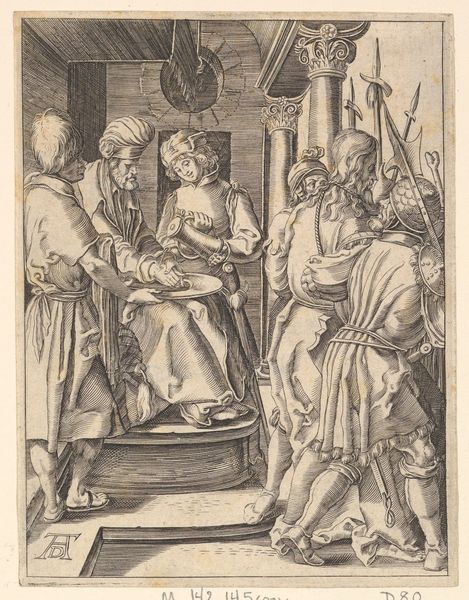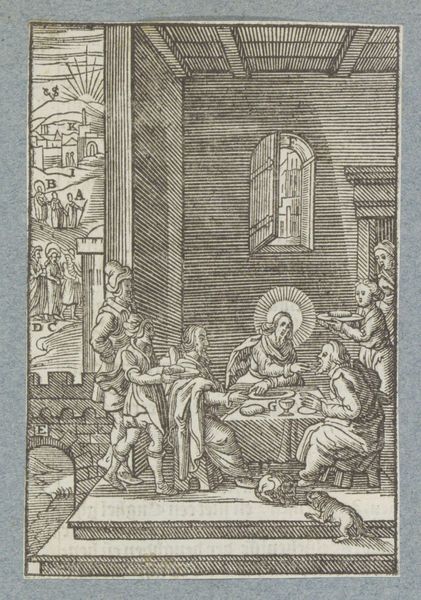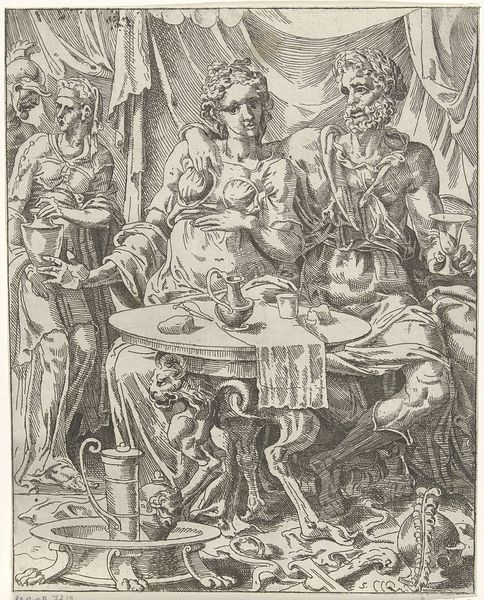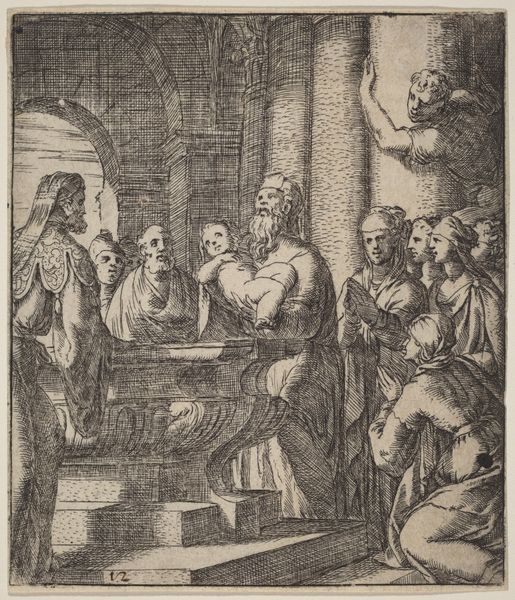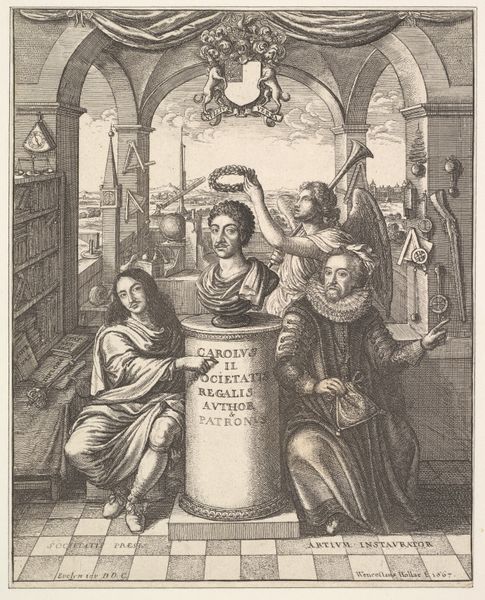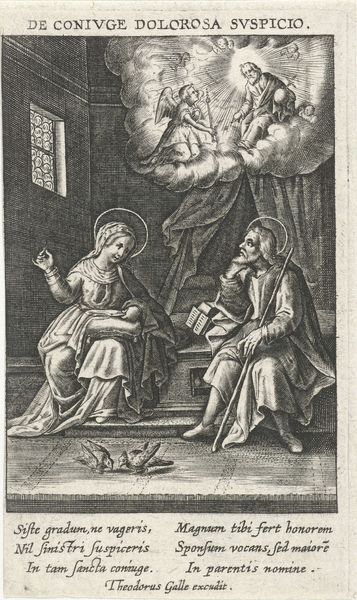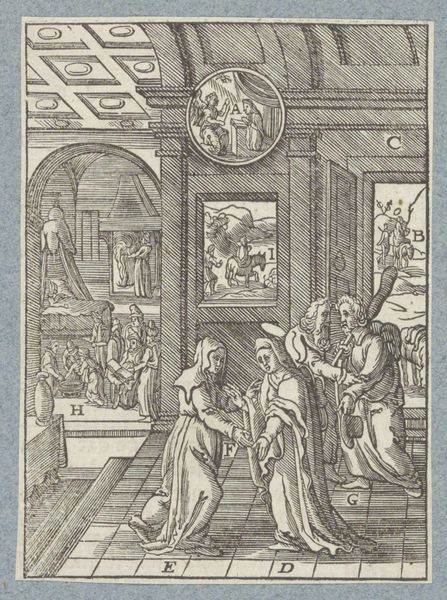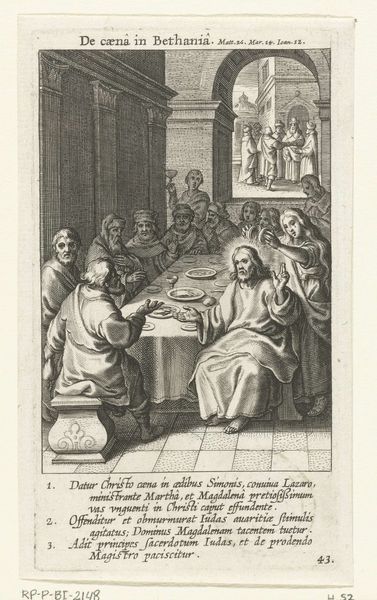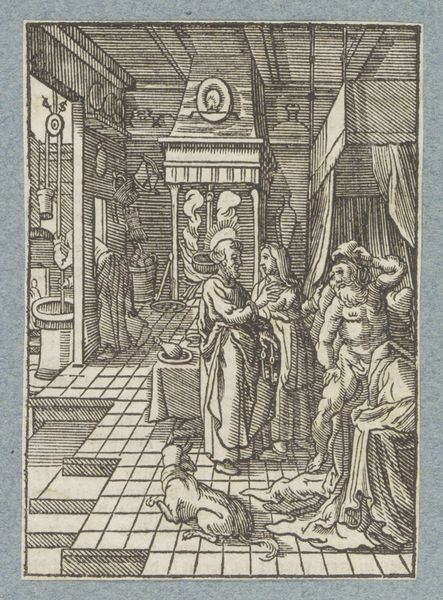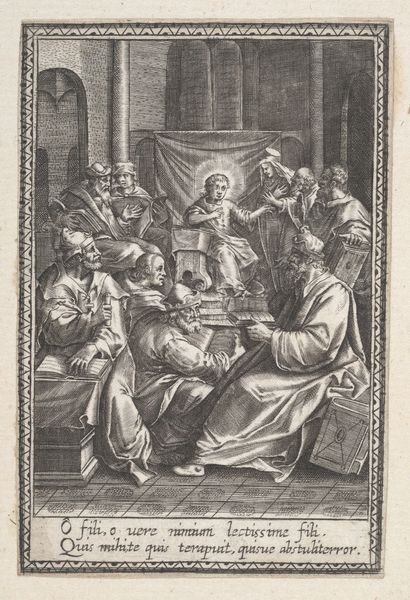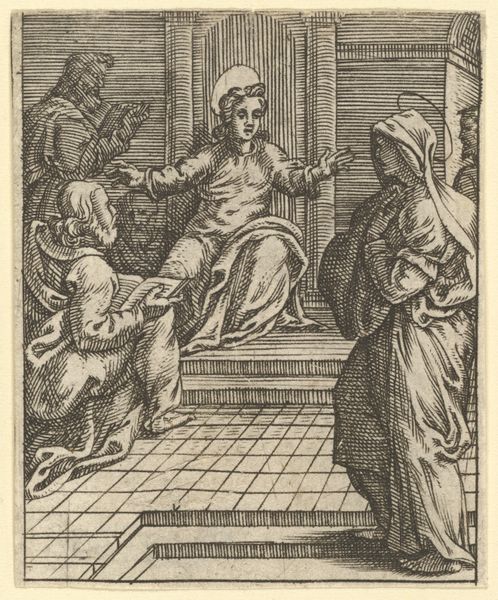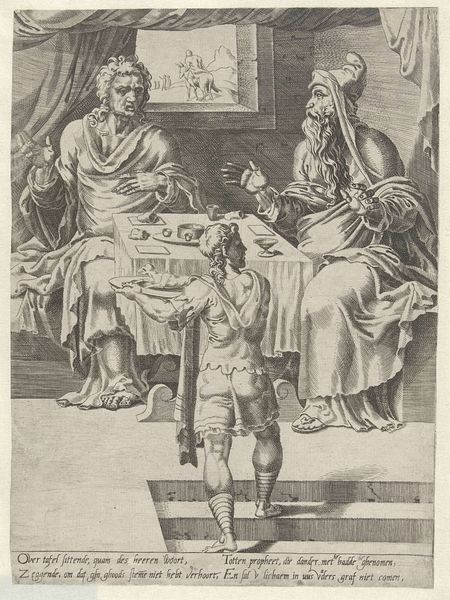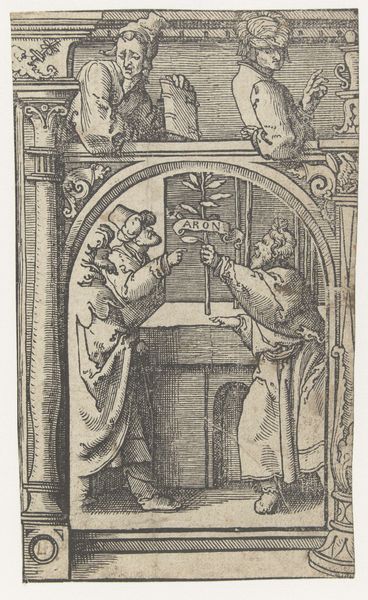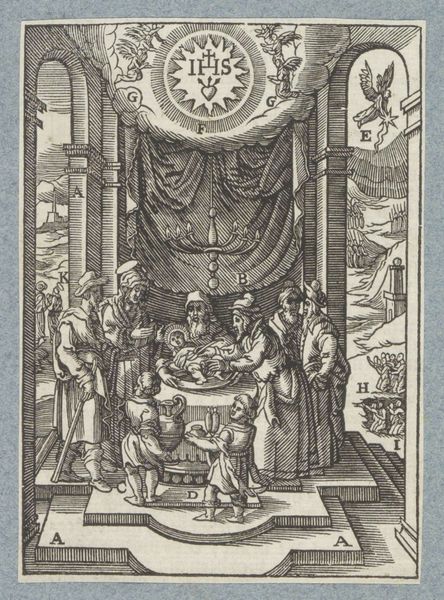
drawing, print, paper, ink, engraving
#
drawing
#
narrative-art
#
pen drawing
# print
#
paper
#
11_renaissance
#
ink
#
genre-painting
#
engraving
Dimensions: height 72 mm, width 59 mm
Copyright: Rijks Museum: Open Domain
Christoffel van Sichem II made this woodcut, "Emmaüsgangers," sometime in the early to mid-17th century, likely in the Netherlands. It depicts the story from the Gospel of Luke where the resurrected Jesus appears to two disciples on the road to Emmaus, but they only recognize him when he breaks bread with them. The image itself isn't groundbreaking artistically. Instead, its meaning lies in its accessibility. Woodcuts like these were relatively inexpensive to produce, making religious imagery available to a wider audience beyond the wealthy elite who could afford paintings. This was particularly important in the context of the Reformation and Counter-Reformation, as different religious factions sought to disseminate their messages. Prints like this one played a crucial role in shaping popular piety and religious identity during a period of intense social and religious upheaval. By studying the printmaking industry and the distribution networks of images like this, we can gain a deeper understanding of the social and cultural forces that shaped early modern Europe.
Comments
No comments
Be the first to comment and join the conversation on the ultimate creative platform.
